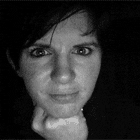 In Sana’a the opposition was outfoxed by President Saleh — but protests in provincial cities show the public’s anger has not abated. Iona Craig reports
In Sana’a the opposition was outfoxed by President Saleh — but protests in provincial cities show the public’s anger has not abated. Iona Craig reports
As Cairo’s Tahrir Square and surrounding area spiraled into chaos,the central square of the same name (Liberation) in Yemen’s capital, Sana’a, was inhabited by pro-Saleh supporters in oversized tents.
Despite two opposing demonstrations taking place in the capital — pro- and anti-government — the feared violence on Yemen’s “day of rage” failed to materialise on Thursday, at least in Sana’a.
To the east of the country, in the coastal city of Mukkalla, the main city of Hadramaut province, at least one person was reportedly shot when government security forces opened fire on demonstrators. Other major protests took place in Taiz, Ibb and the southern city of Aden, where 22 people were arrested, according to local press.
Unfortunately there is no western media coverage of the provincial cities and as far as the world’s press was concerned, Yemen’s “day of rage” rather fizzled out. Tahrir Square in Sana’a couldn’t have offered a scene of greater contrast to that of Cairo’s. In Yemen’s capital, the day turned into a massive chewing session of the mildly narcotic leaf, qat, by pro-government supporters as they settled in to large wedding-style tents.
President Ali Abdullah Saleh has been extremely clever in his management of events here. After 32 years in power, he has become something of an expert at keeping his job.
Since the knock-on effect of Tunisia’s uprising began to be felt and protests in Yemen mounted, the president has announced a string of welfare reforms to appease the people and on the eve of Thursday’s protests, he declared that he would not stand for re-election at the end of his term in 2013. He made the same declaration in 2005 before standing as president in 2006. Saleh also reached out to opposition parties on Wednesday by conceding on a four-member electoral committee, stating that it would now include two opposition members. The coalition of opposition parties, the JMP, has so far boycotted the election process, due in April.
The president’s PR machine has been so slick that his supporters were ready and waiting to cheer him on — and call on him not to stand down in 2013 — before he had even made the announcement in an emergency parliament meeting on Wednesday. The takeover of the capital’s main square meant that planned anti-government demonstrators were forced to switch location at the last minute to Sana’a University.
Despite a distinct build up in security — soldiers occupied every major junction and street corner in the capital on Thursday — the two sets of demonstrations passed off peacefully without ever meeting. In the rest of the country where the international press does not tread, events were less passive.
On Friday in Sana’a there were no spontaneous follow-ups to yesterday’s demonstrations, organised by the opposition. Yemenis are so far reluctant to pick up the baton from the Egyptians. What’s happening in the rest of Yemen is less clear and may be more crucial than events in the capital.
Iona Craig is a freelance journalist and editor at the Yemen Times, Sana’a.





